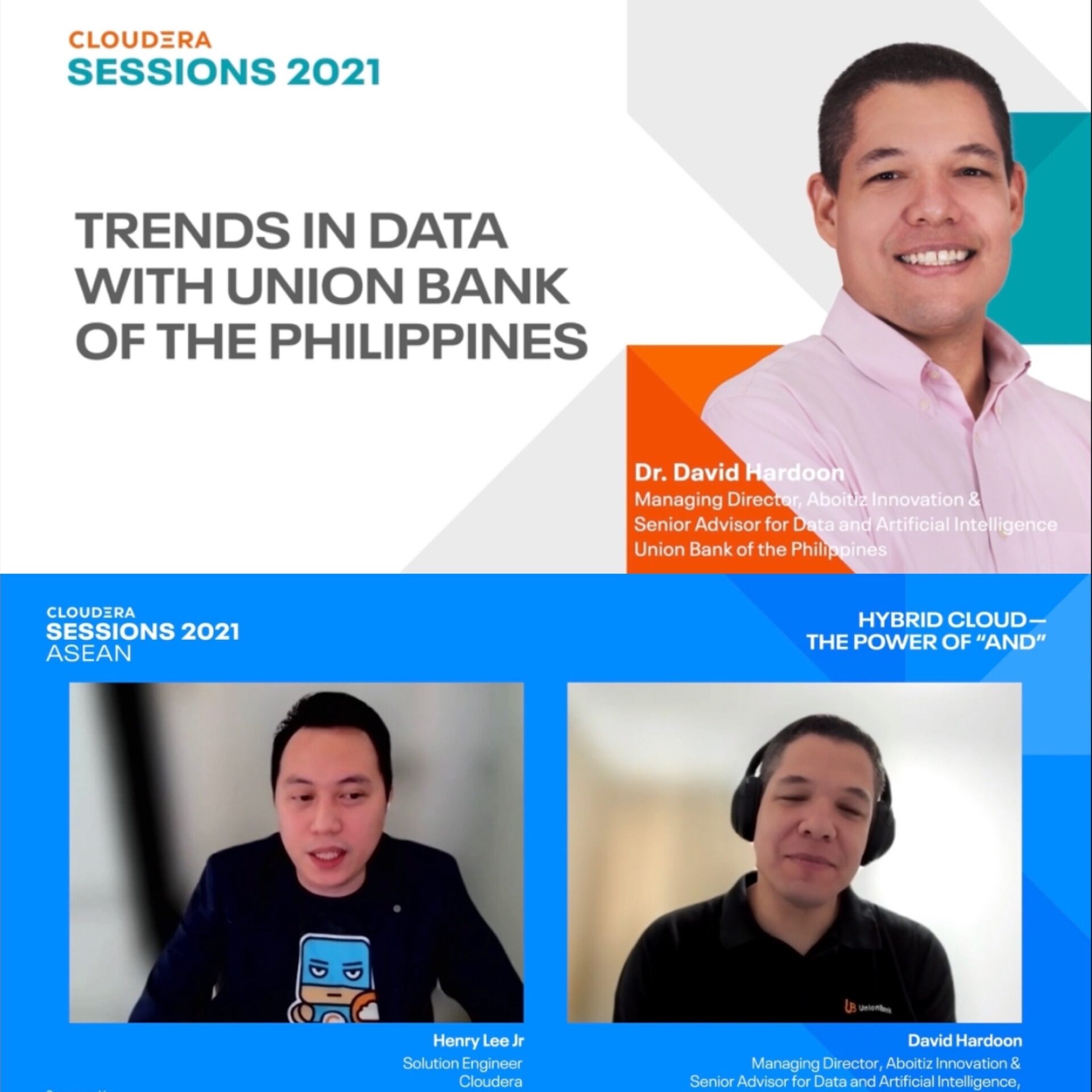As economies across the world become more conducive to the open finance framework, data science and artificial intelligence (AI) now both play an increasingly crucial role in cross-platform data sharing. This was one of the main ideas explained by Union Bank of the Philippines (UnionBank) Chief Data & Artificial Intelligence Officer Dr. David Hardoon during his panel discussion at the recently concluded Cloudera Sessions 2021 ASEAN.
Dr. Hardoon emphasized that the fundamental ideas of data science and AI have always been around even before the term was coined in the late 2000s, with the variation being the recent advancements in terms of theory, research, and methodology.
“Of course there’s been advancement in technology, theory, research, and methodologies, but the fundamental techniques, the fundamental building blocks have already been there. What has changed is the environment and the ability to apply them. Therefore, to me, what we kind of really need to see is the pervasiveness of it,” Dr. Hardoon said.
Clearly, there is still a long way to go in terms of adoption, but Dr. Hardoon said there is already a significant number of companies that are using data science and AI in some form or capacity. Establishments are also now starting to embrace these technologies for various reasons. “One from a competitive edge point-of-view—you know, survival of the fittest, you’re fighting with certain organizations which are using these kinds of techniques and are coming up on top.”
“I’m very excited because the rate of momentum over the last three years has been rapidly accelerating. I’m very hopeful that two, three, five years from now, we will get to the stage where it will be the exception where organizations either are not considering or fully not using some dimension of data science, machine learning, or AI within the organization,” noted Dr. Hardoon.
The UnionBank executive also mentioned that in addition to enabling more personalized services, open finance will likewise enable these technologies to operate across various platforms resulting to seamless data sharing. This will ultimately improve the end users’ experience even as they move through different organizations or providers.
“By using data, it’s the ability of saying ‘I know you’re a retail customer, but I think this loan may be useful for you’. It’s really about leveraging all these opportunities to build services and solutions around moments of life, enabling moments of life,” said Dr. Hardoon.
“It’s also great for new potential providers where they want to create more specific relevant products,” he added. “It really opens up the door for a tremendous amount of possibilities, so I’m really excited in what it’s going to bring effectively.”
“Now look, is it going to increase competition? Sure. But at the end of the day, that’s how it is. It’s a good thing. In fact, if anything, this would furthermore increase the criticality and the importance of using data. That’s the whole aspect of open banking. It’s on a virtual construct, it’s all situated on data,” Dr. Hardoon concluded.




